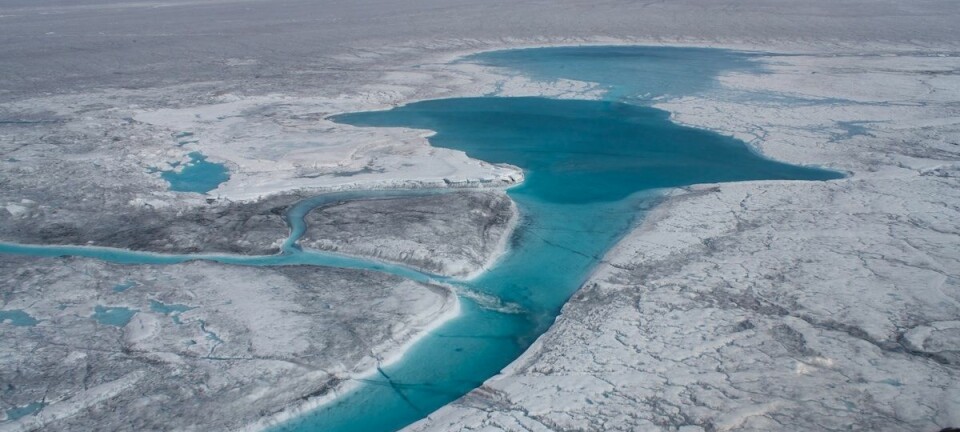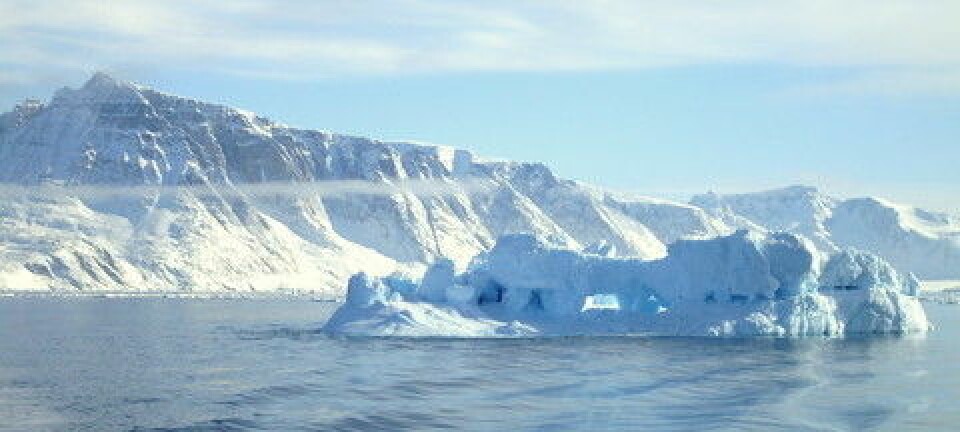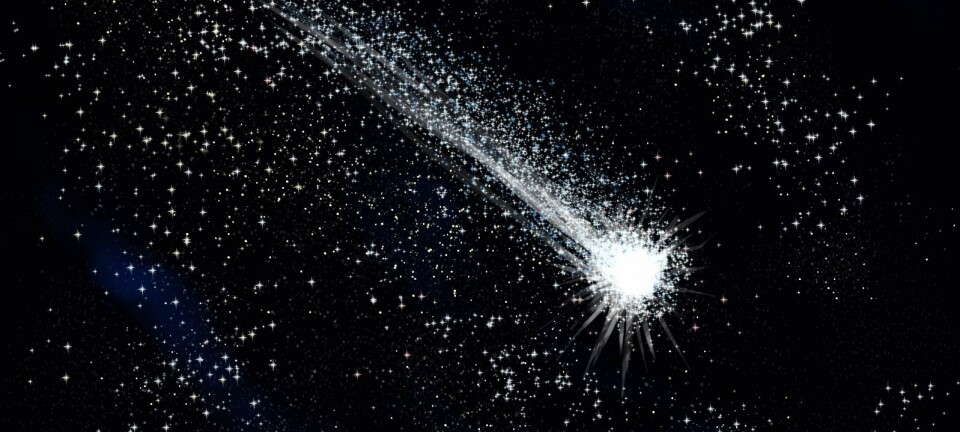
Bacteria in the atmosphere cause rain
Scientists think that bacteria in the atmosphere are playing an important role in making it rain.
Bacteria are everywhere, and now scientists say they might also play an important role in making rain.
More and more studies suggest that airborne bacteria influence the formation of rain and snow, and scientists now hope that this knowledge can improve the accuracy of weather forecasts.
"We all know that weather forecasts are not always very precise,” says Tina Santl-Temkiv, a postdoc at the Stellar Astrophysics Centre at Aarhus University, Denmark.
“But hopefully our knowledge of the role of bacteria in the atmosphere will improve weather forecasts in the future," she says.
Santl-Temkiv is lead author of a study, which discovered a number of bacteria in rain and snow collected in Denmark.
Role of bacteria is not fully understood
At the Danish Meteorological Institute (DMI), scientists are already investigating how they can integrate the role of atmospheric bacteria into their forecasting models.
"There’s currently a lot of uncertainty about how many bacteria there are [in the atmosphere] and what effect they might have,” says co-author Ulrik Smith Korsholm, head of section at the Danish Meteorological Institute (DMI).
“We’ve designed experiments to simulate the effect of bacteria in our weather forecasting models, and it seems that the bacteria do have an effect on the rain formation," he says.
However, both Korsholm and Santl-Temkiv stress that there is a long way to go before the role of bacteria in the atmosphere is fully understood.
"In recent years there has been great interest in researching how bacteria affect the weather. But it’s still a very new area and we need a lot more research before we see it implemented in TV weather forecasts," says Santl-Temkiv.
Clean water does not freeze at zero degrees
The theory is that atmospheric bacteria affect the temperature at which water freezes.
"Most people think that water always freezes at zero degrees but very pure water actually freezes at about minus 40 degrees. If there is some dust or other small, invisible particles in the water, this raises the freezing point. The same applies if there are bacteria in the water," says Santl-Temkiv.
A previous study showed that when purified water is cooled slowly, it may in certain circumstances, only begin to freeze at temperatures less than minus 48 degrees Celsius. Bacteria or other particles however, would force the water to freeze at higher temperatures.
"15 years ago it was believed that it was only minerals and other particles, which could freeze water droplets and form rain. But we can see that ice forms in clouds even at temperatures higher than minus 10 degrees. We believe that this can only occur with the help of bacteria," says Santl-Temkiv.
Collecting rain in Denmark
In the new study, Santl-Temkiv collected samples of snow and rain from about 30 meters above the ground in Roskilde, a small town in East Denmark.
It was important for the researchers to know that the bacteria they had collected was really from the rain and snow they were collecting, and had not come from any contamination by dust or bacteria from the soil.
To check for this, they placed pots of sterilised water alongside their sample collection bottles. If the sterilised water later turned out to be filled with bacteria or dust, it would indicate that the precipitation samples had also been contaminated.
The sterilised water showed no signs of contamination, but the precipitation samples contained both bacteria and fragments of bacteria.
"If you imagine a drop of water that contains bacteria or just fragments of bacteria, we know that it will freeze at a higher temperature than a water droplet without those bacteria,” says Korsholm.
“So our theory is that bacteria may affect the formation of rain in clouds with ice crystals in their upper layers--and potentially the climate in general. But there’s still a long way to go before we know exactly what effect bacteria have," he says.
Bacteria can potentially play a role in climate
The same message comes from Aksel Walløe Hansen, associate professor, and lecturer in climate and geophysics with the Niels Bohr Institute, the University of Copenhagen, Denmark.
"It's not so surprising that they've found bacteria and organic matter in the atmosphere. But we need further information on how it affects the whole [climate],” says Hansen, who was not involved in the new study.
“We know from many other contexts that it’s not physics alone that determines what happens on Earth--the entire evolutionary history of the Earth is dominated by life. In this way, it fits with the overall picture that bacteria in the atmosphere should play a role in our climate," says Hansen.
The study is published in the scientific journal Atmospheric Environment.
--------------------
Read the Danish version of this article on Videnskab.dk
Translated by: Catherine Jex
Scientific links
- 'Characterization of airborne ice-nucleation-active bacteria and bacterial fragments', 2015, Atmospheric Environment, doi:10.1016/j.atmosenv.2015.02.060
- 'Structural transformation in supercooled water controls the crystallization rate of ice', Nature, 2011, doi:10.1038/nature10586











